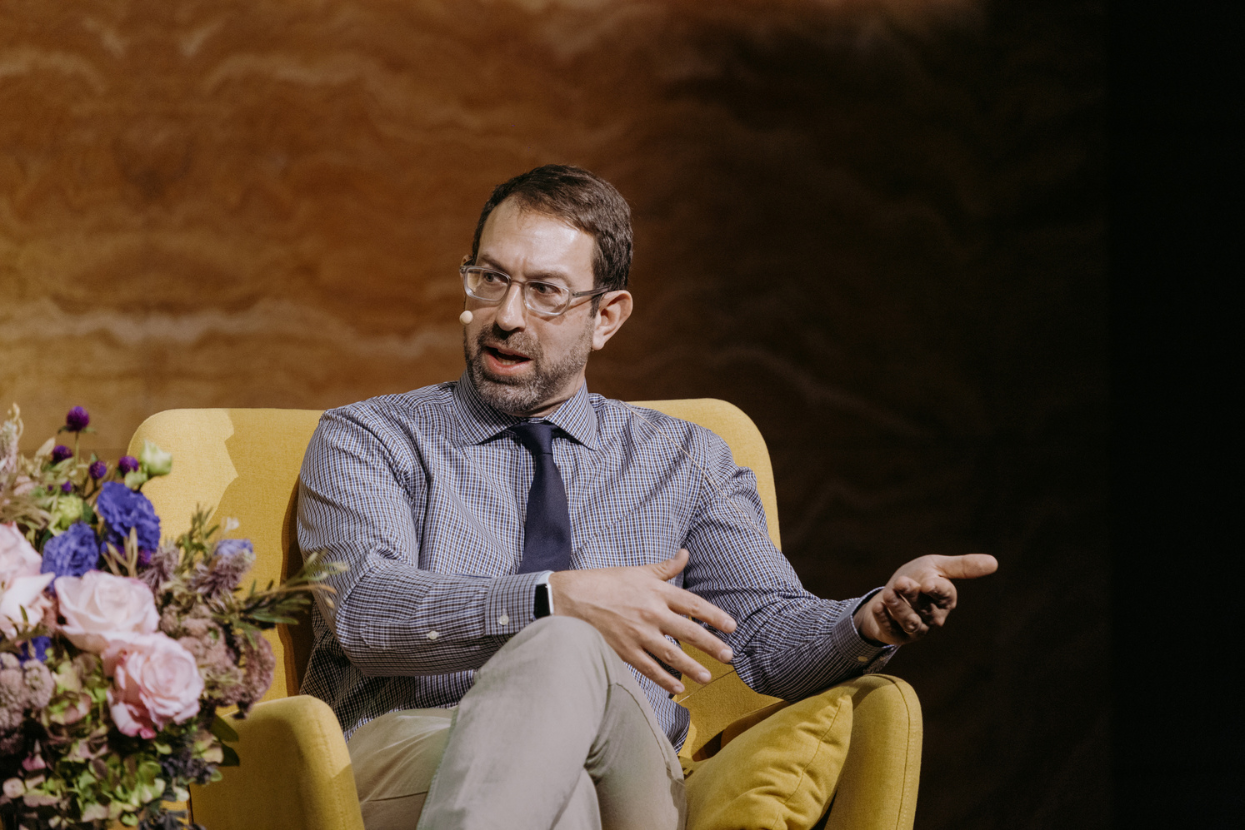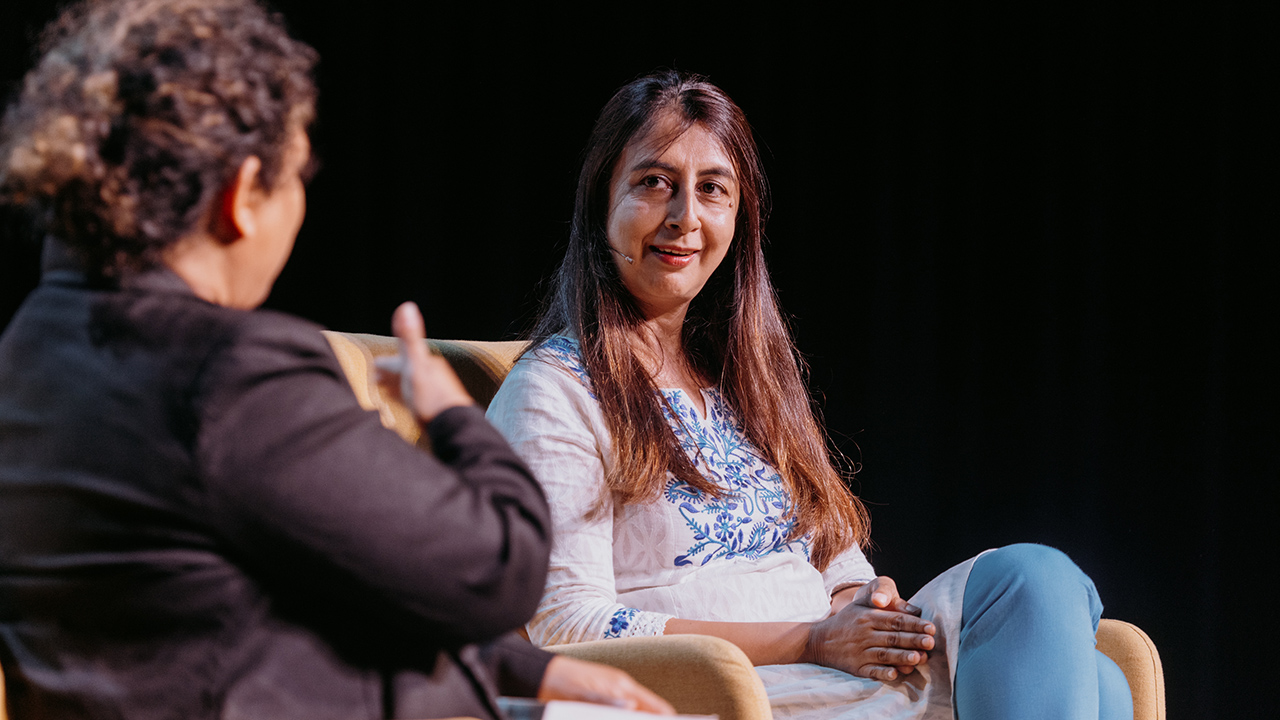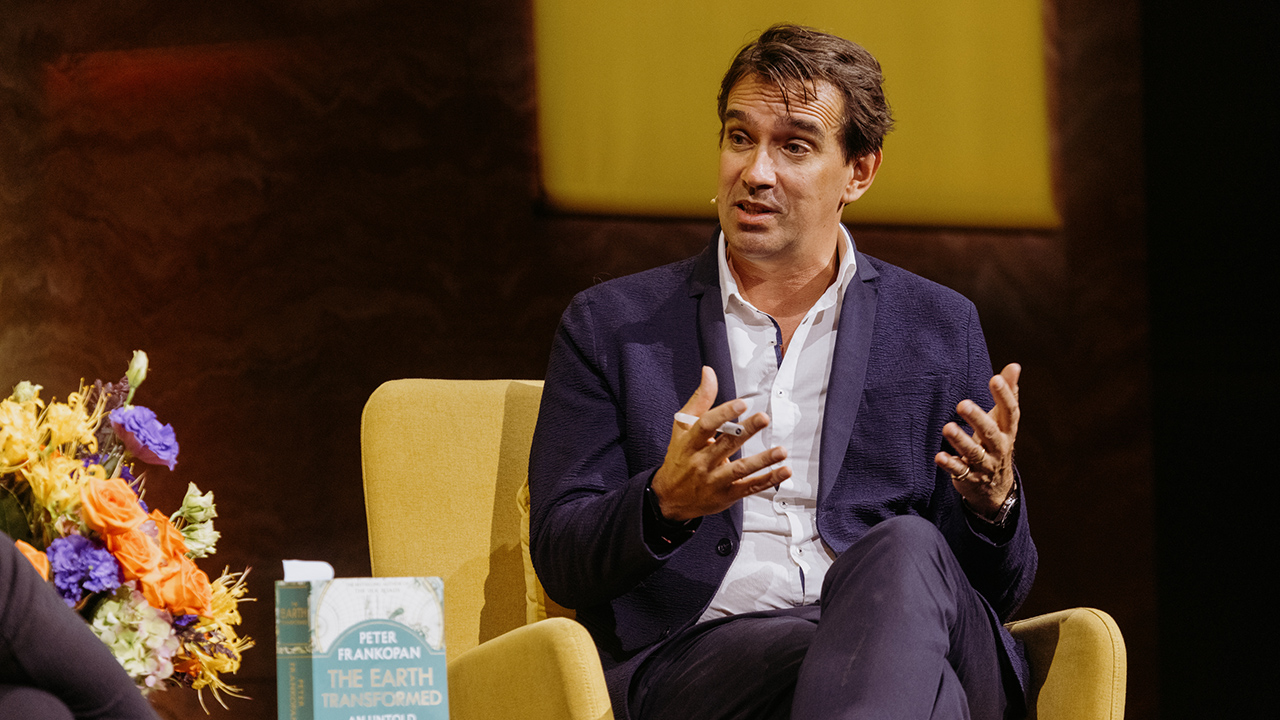Isabelle Volpe | Children and drugs: the protection racket
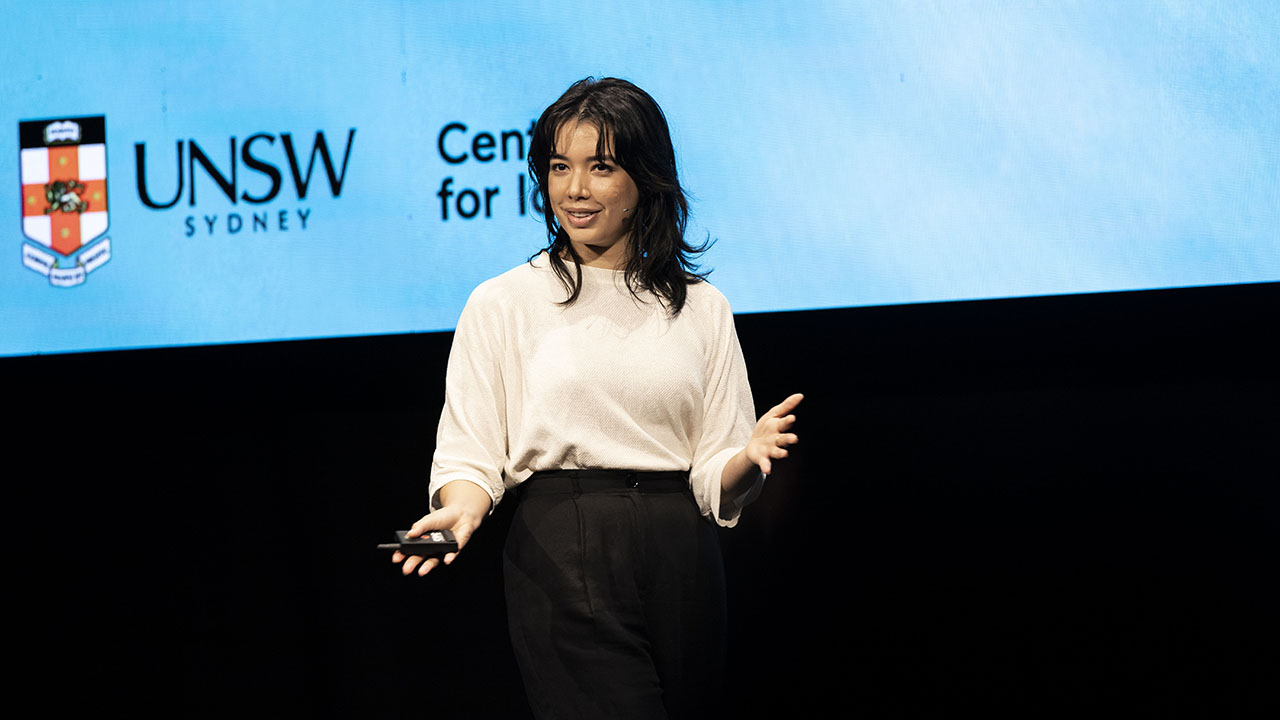
The decisions that we make in the name of protection are designed to make adults feel safe, not children.
When we introduce laws and policies to protect our children from drugs, are we actually doing more harm than good?
Historically, the ‘protection of children’ has been more about adult fears than child wellbeing. But even today, our ideas about protecting children are still quite paternalistic, exclusionary, dishonest and sometimes even dangerous. It's easy enough to stick our heads in the sand and imagine that we can wish away children’s drug use. It’s harder, but far more rewarding, to look at things from the point of view of our children.
Isn’t it time we stopped framing our rules around ideas of right and wrong, and started thinking in terms of what would really keep more children safe? Won’t someone please think of the children?
This talk was a part of Fresh Blood, an event of short talks in the 2022 Festival of Dangerous Ideas.
Transcript
UNSW Centre for Ideas: Welcome to the UNSW Centre for Ideas podcast. A place to hear ideas from the world's leading thinkers and UNSW Sydney’s brightest minds. The talk you are about to hear, Children and drugs: the protection racket, features UNSW Sydney’s PhD candidate, Isabelle Volpe, and was recorded live. This talk was a part of ‘Fresh Blood’, an event of short talks in the 2022 Festival of Dangerous Ideas.
Isabel Volpe: We need to stop protecting children from drugs. I realise that this probably sounds like exactly the opposite of what a drug policy researcher should say. But here's the deal, one in eight Australian children aged 14 to 17 have used illicit drugs. Children under the age of 18 have always used drugs, and that is not about to change. The obvious thing to acknowledge here is that we really don't want these children to experience harms from drugs. And we do have real concerns about what might happen if they do use drugs. We're worried about things like injury and overdose, and dependence and death. The gravity of these threats leaves us with what feels like very little margin for error. So it's understandable that we have so much anxiety around what might happen if we don't get it right. We are terrified of getting things wrong. So we go into helicopter policy mode, and we do whatever we can to feel like we're in control of how children interact with drugs. This leads us to a way of doing protection that aims, above all else, to entirely eliminate drugs from children's lives. But the problem is that this has never ever at any point in history, worked. And it's not about to start working now.
So I was curious about how this idea of protection has manifested over time. So I did a bit of digging. And what I found was that the idea of protection has been used for a very long time as a code word to justify whatever it is that the state is doing to control what children do, especially the ones who are seen as undesirable, or who are doing undesirable things. I'll give you the example of Oliver Twist. If you don't know the story of Oliver Twist, it's a story about an orphan boy who grew up in a workhouse in Victorian England. So, workhouses were supposed to be places of protection. They were places where the poorest people could go to get care, and food and shelter. But in Oliver Twist, we get a very different view of what the reality of this protection looks like.
Children were overworked, they were malnourished, and they were harshly punished. When Oliver, who was starving, asked, please can I have some more? He got beaten and he got kicked out. Now, Oliver Twist is a story, but by all accounts, it's a pretty accurate reflection of the workhouse system and the treatment of the poor at the time. And it tells us two things about protection; the first thing is that protection is conditional. To get protection, Oliver had to follow the rules, even if they were overly strict and cruel. And when he broke the rules, his protection was void. The second thing is that things that we call protection aren't always designed to be in the best interests of all children. Yes, children were kept off the streets. But that doesn't make the workhouse owners benevolent protectors. The workhouse system was a lazy system of protection. Nobody ever thought that they were actually the best way to deal with poor children. It was just easier to put it all out of sight out of mind than for society to deal with something so complicated.
When it comes to drugs, nobody actually believes that we can put children away into a section of the world where drugs don't exist, and children will never consider using them. No amount of wishful thinking is going to create a world where children don't take drugs. So fundamentally, the logic behind protection as we use it today doesn't make any sense. It's out of touch with reality. And it leaves us with a very narrow offering of what kinds of situations we're equipped to deal with. And by that, I mean that we've gotten it stuck in our heads that the only way of doing protection is abstinence. But abstinence means no Plan B, and when our policy is to not have a Plan B, it means that we're creating conditions that are more dangerous for children who do take drugs.
Now insisting on abstinence, that's something that we've seen before. Thankfully, abstinence based approaches to sex education are considered quite old fashioned now. And for the most part, we are happy for kids to know about consent and respect and sexual health. And those conversations can be clunky and uncomfortable and imperfect. But we push through them because even though we would rather our kids not have sex, we'd rather know that if they do, they're empowered with knowledge to do so as safely as possible.
Now let's compare that with how we do drug education. Perhaps you remember your drug education. Perhaps you remember a puppet giraffe called Harold beckoning you into a van and telling you that all drugs are awful and you shouldn't do them. Perhaps you remember various iterations of catchy slogans as you got older, and you were told, ‘all drugs are dangerous’, ‘a single pill can kill’ and ‘just say no’. The problem with these catchy slogans is that we're lying. The vast majority of those one in eight children will stop using drugs as they get older. And the vast majority will not experience harm from their drug use. That should be reassuring to us. But we are scared of children knowing that because we don't trust them with that knowledge. So instead, we lean into fear mongering. But fear mongering threatens the trust that we need children to have in us if we want to leave the door open for frank and honest conversations about drugs. If we want to meaningfully engage with children, they need to trust that adults are open to good faith conversations. And that starts with us setting the tone. That starts with us not basing drug education on a strategy of fear, but on principles of respect and support where children are empowered to figure out how to navigate these complex situations. And we need to do that even if we think that they're making some really questionable decisions along the way.
If we allow ourselves to think beyond protection, if we allow ourselves to step outside of our protection bubble, we'll see that there are lots of sensible strategies that we can use to support those one in eight children. One example is drug checking, or pill testing. Drug checking is a service where people can go if they're planning on taking drugs, they can get the contents of their drugs analysed, so they know what's in the drug, they can identify potential harms, and they can chat with a health professional. Drug checking cannot guarantee absolute safety. But that extra information can make things a hell of a lot safer. Now, our drug education talks a lot about how we need to protect children by supporting them to make informed decisions about drugs. And there is no reason that our commitment to informed decisions should stop at the point when a child is holding a drug in their hand. And they want more information about it. If we were serious about their safety, that would be the point when we would throw every protection possible at them. But time after time, we've seen drug checking shot down.
Because we don't want to send the ‘wrong message’ to children. The ‘wrong message’, apparently, is that some level of safety can exist without adhering to abstinence. The ‘right message’ is that children can only be safe if they abstain. And if they want to go ahead and use drugs anyway, they're on their own, and they don't deserve a second line of defence. But we need to support them in those moments, because we've seen the worst case scenario when we don't. We've seen teenagers overdose and die. And then we've seen adults, especially politicians, but also many complicit adults stand around and say, oh, that's awful, but we told you so. And then we've seen that child experience become another statistic to be used as evidence for the dangers of drugs. And it all becomes a part of our story about, how can we possibly protect them if they refuse to play by the rules?
Well, what we could do is, we could listen to what those children need, and we could consider how we might change our approach. But instead, we double down on abstinence, and we insist that there is nothing that we can do. That is a protection racket, we have got to step back and think about the consequences of making decisions like this. Decisions like this that we make in the name of protection are designed to make adults feel safer, not children. Ultimately, we're creating conditions that are more dangerous than they need to be. And we need to take responsibility for that.
Protection when it comes to drugs is well intentioned, but it's also exclusionary, it's dishonest, and it's harmful. And it stops us from changing things because we are too scared of getting it wrong. We need messy and unpalatable conversations with our children about drugs. We need dangerous conversations that make us clutch our pearls because they shatter our delusions of ideal, innocent, abstinent children. We need to be open to sitting uncomfortably in the space between what is definitively safe and definitively unsafe, because it's only then that we can start to make that in-between bit, safer. That way instead of excluding misbehaving children from protection, we can work with them to navigate complex decisions and situations with the best tools that we have available. That is how we end the protection racket.
UNSW Centre for Ideas: Thanks for listening. This talk was presented by the UNSW Centre for Ideas and Festival of Dangerous Ideas. For more information visit centreforideas.com, and don't forget to subscribe wherever you get your podcasts.
-
1/3
-
2/3
-
3/3
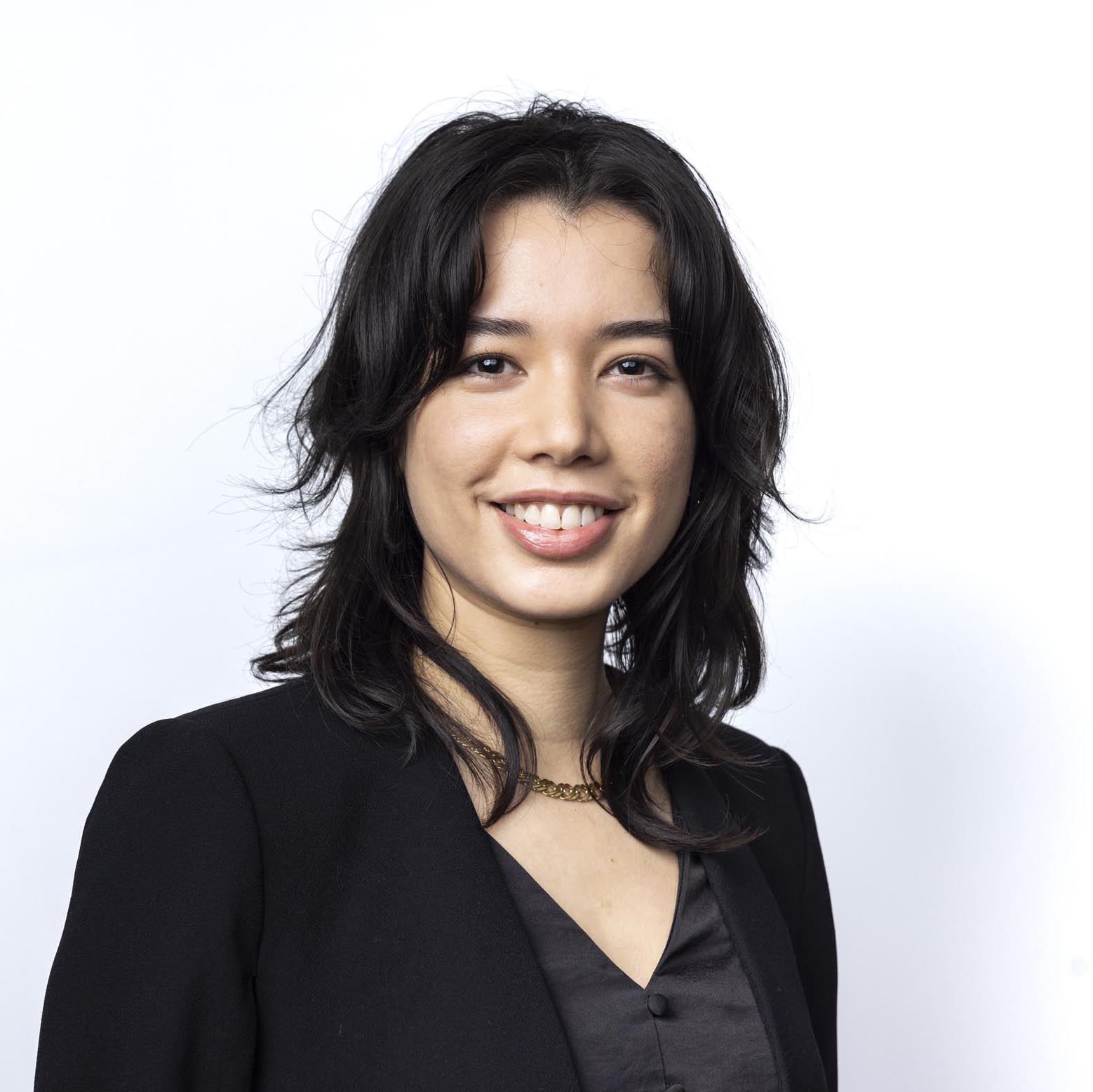
Isabelle Volpe
Isabelle Volpe is a PhD candidate in the Social Policy Research Centre at UNSW Sydney. Her PhD research uses critical social science approaches to explore the intersection of young people, drugs, policy and participation. Isabelle's research has focused on treatment and policy for alcohol and other drugs. Her previous projects have included clinical trials, treatment guidelines, government-commissioned projects, and the design of health promotion interventions. Isabelle is also involved in advocacy efforts relating to drug checking and young people’s drug use.

